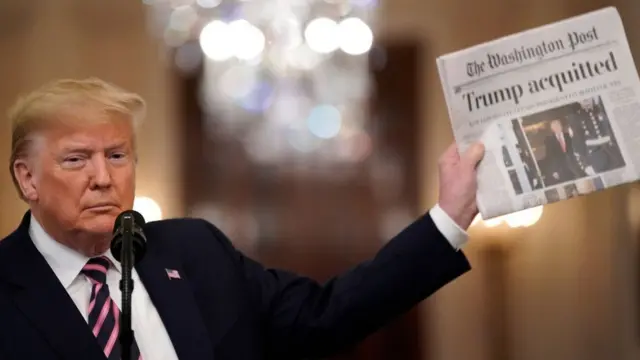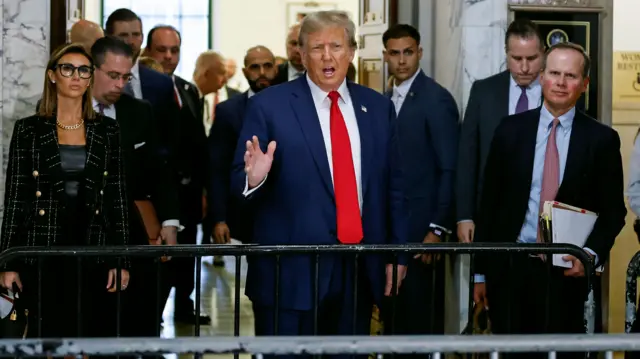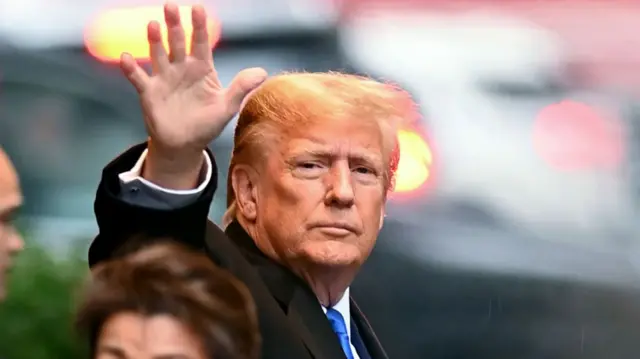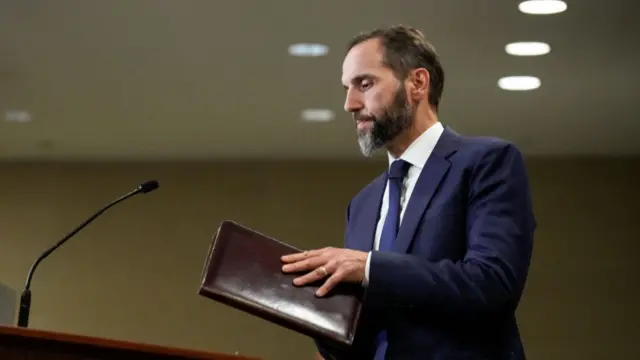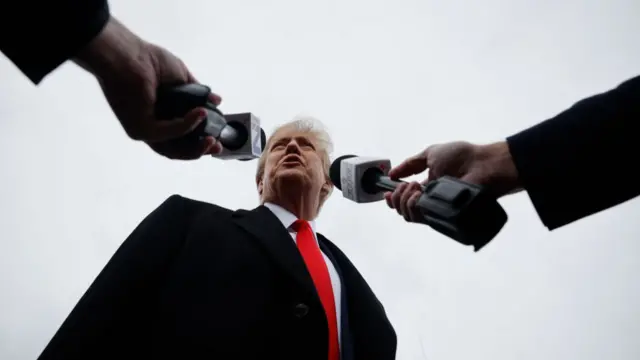Court denies Trump's presidential immunity claimspublished at 20:20 GMT 6 February 2024
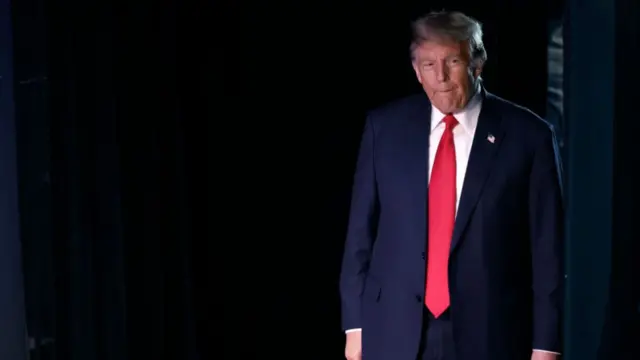 Image source, Getty Images
Image source, Getty ImagesThat's it from us and our live coverage of Trump's latest court ruling. Here's a quick recap of what's happened today:
- A US court ruled Donald Trump does not have presidential immunity
- This means he can be prosecuted on charges of plotting to overturn the 2020 election
- The three judge ruling says Trump’s stance "would collapse our system of separated powers by placing the president beyond the reach of all three branches"
- Despite the ruling, Trump has continued to argue US presidents must be immune - saying on social media the ruling is "nation-destroying"
- Trump campaign spokesman Steven Cheung says the DC Circuit court's decision will be appealed
- Trump has until 12 February to take his case to the Supreme Court - and the Supreme Court will then decide whether it wants to intervene
But although this is a defeat for Trump in court, as our North America correspondent writes it's still a win for his strategy to delay his court dates.

